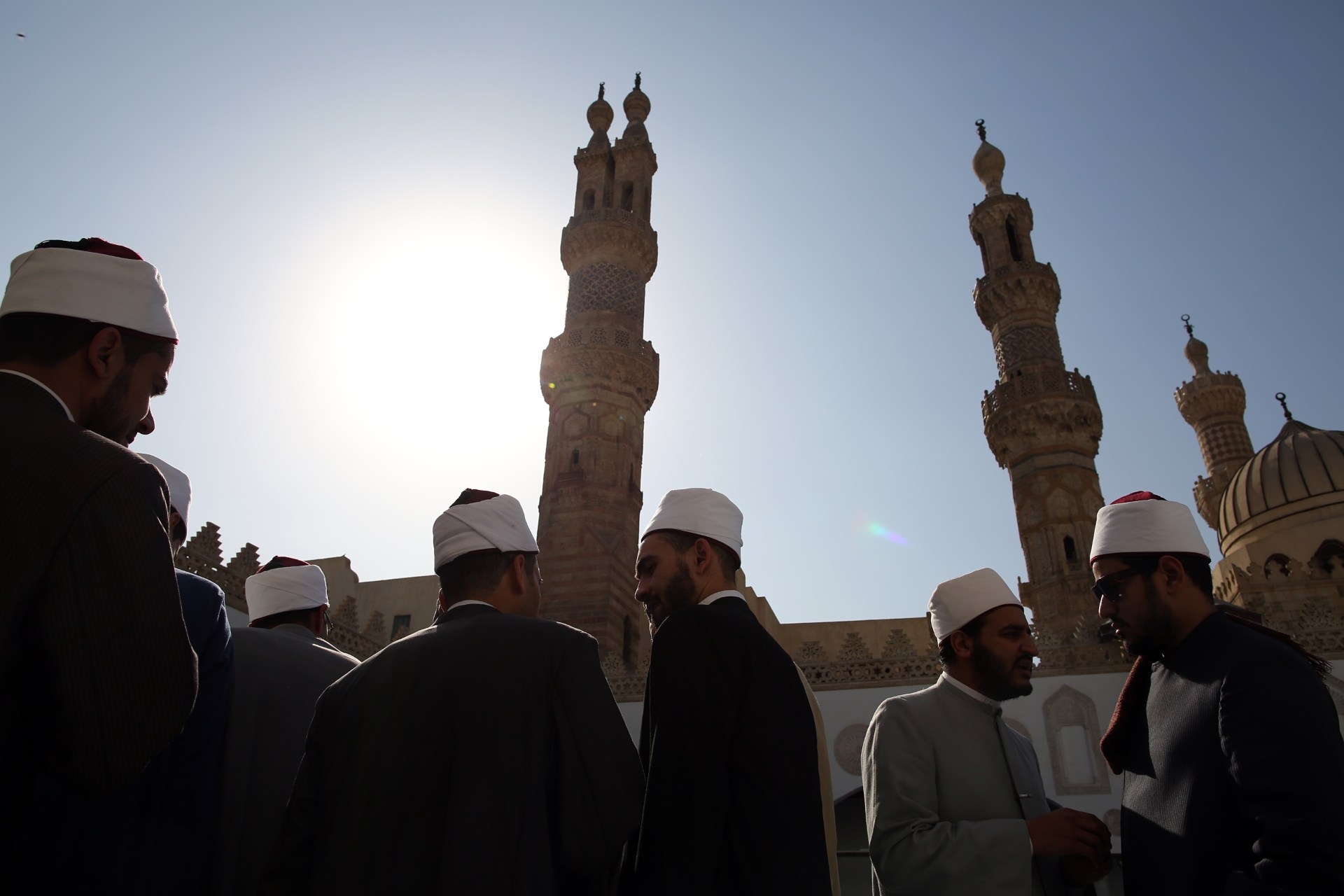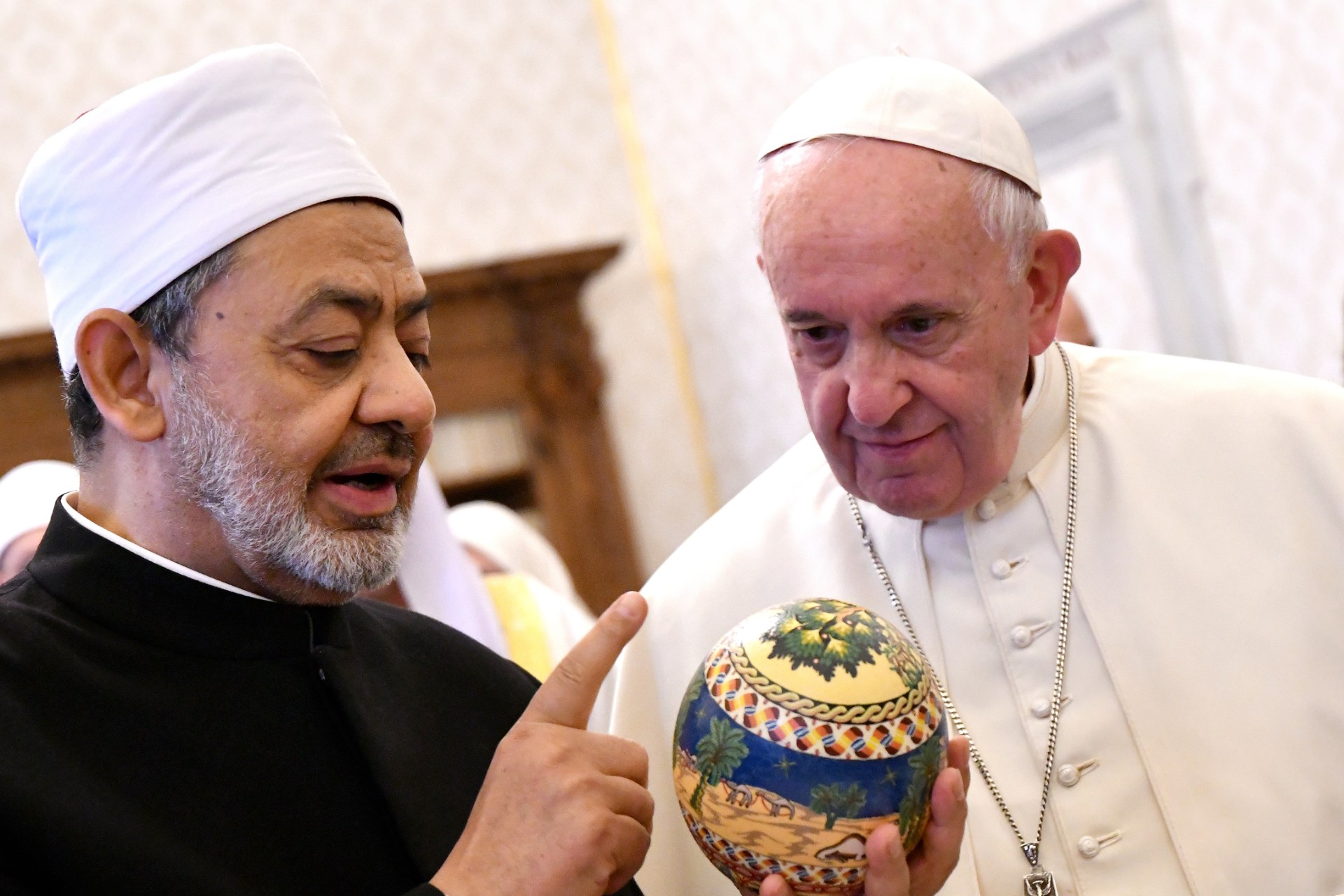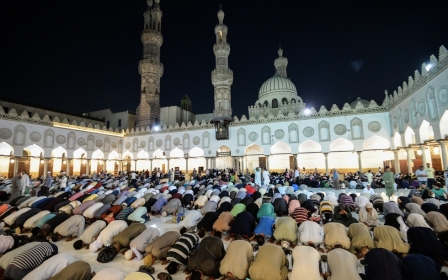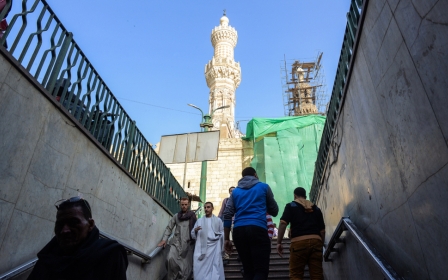Egypt's al-Azhar poised to be stripped of its power

The Egyptian parliament and al-Azhar, the highest seat of learning in the Sunni Islamic world, are locking horns over the approval of a new bill that strips the latter of control over Dar al-Ifta, by far the most important religious authority in Egypt.
The parliament approved the bill in principle on 19 July and referred it to the State Council, a judiciary body that checks the legality of draft laws before they are finally approved by the parliament. Final approval is expected to be a formality.
The bill puts Dar al-Ifta, which regulates the life of Egypt's Muslims and opines on their day-to-day affairs, under the control of the Egyptian government.
It gives Dar al-Ifta authority over its own budget and financial dealings and exempts it from taxes.
Most importantly, the bill gives President Abdel Fattah el-Sisi the right to appoint the mufti, Egypt's top Islamic jurist, for the first time.
New MEE newsletter: Jerusalem Dispatch
Sign up to get the latest insights and analysis on Israel-Palestine, alongside Turkey Unpacked and other MEE newsletters
According to the new bill, the president has to pick one candidate from three nominated by the Council of Senior Scholars, al-Azhar’s decision-making body.
The council, which also appoints the grand imam of al-Azhar, was responsible for appointing the muftis for many decades in the past.
Once picked for the job, the mufti - in the light of the new bill - will enjoy the financial status of a cabinet minister.
Those proposing the bill say it aims to give more independence to Dar al-Ifta.
"This will make Dar al-Ifta more capable of doing its job," Amr Hamroush, a member of parliament’s Committee on Religious Affairs, told Middle East Eye.
Rejection
The status of Dar al-Ifta is a matter of extreme importance. Given its position in the life of Egypt's Muslims, this organisation decides who is in control or who has influence over Egypt's religious life.
Apart from opining on the day-to-day life affairs of Muslims, Dar al-Ifta regulates the financial dealings of ordinary people, answers queries sent to it by state institutions and the courts, and has a say on death sentences issued by these courts.
Al-Azhar says the bill steps into a realm that has been its own for hundreds of years.
"The bill is a blatant violation of the autonomy of al-Azhar," Mohamed al-Duweini, a member of the Council of Senior Scholars, told MEE. "Dar al-Ifta has to be part of al-Azhar, not a parallel or a rival institution."
Stripped of the right to oversee the work of Dar al-Ifta, al-Azhar will be left in control of almost nothing.
It supervises none of the nation's 102,000 mosques, a job done now by the Ministry of Endowments.
'The bill is a blatant violation of the autonomy of al-Azhar. Dar al-Ifta has to be part of al-Azhar, not a parallel or a rival institution'
- Mohamed al-Duweini, Council of Senior Scholars
Al-Azhar only oversees its schools and universities. Once the bill passes, its control over religious decision-making will be over, possibly for good.
The new bill is not the first attempt by the legislature to trim the powers of al-Azhar, an agency that has been in control of Muslims' lives since its founding in 970.
In April 2018, a group of MPs submitted a draft law to cut down the authority of its grand imam.
The bill sought to limit the tenure of the grand imam, who serves for life, to eight years. It also wanted to make membership in al-Azhar’s top bodies, namely the Supreme Council, the Council of Senior Scholars and the Islamic Research Academy, open to specialists from outside the institution.
Other aspects would have seen al-Azhar prevented from controlling colleges that teach non-religious sciences inside its own universities and supervision over these colleges delegated to the Supreme Universities Council that oversees the nation's secular universities.
That bill’s proponents say al-Azhar desperately needs reforms.
"As an institution, al-Azhar is badly in need of governance," Mohamed Abu Hamed, a member of the Committee on Social Solidarity in parliament and the MP who proposed it, told MEE.
"This [previous bill] would make it more capable of carrying out its duties, especially the required reform of religious thought."
However, pressure by al-Azhar forced the legislature to ditch Abu Hamed's bill.
Under fire
This series of draft laws comes at a time when al-Azhar is under fire.
Detractors of this once-powerful religious institution accuse it of failing to lead urgently needed religious reforms, while Egypt and the region face a high wave of extremism.
"The leaders of al-Azhar have failed in initiating the required reforms," Gaber Asfour, Egypt's former culture minister and a vocal critic of al-Azhar, told MEE.
Like elsewhere in the region, Egypt has been buffeted by militant groups and terror attacks in recent years, particularly in the Sinai Peninsula, where an Islamic State group-linked insurgency has bogged down the Egyptian military.
Egypt’s government, which came to power in a 2013 military coup, has made security and defeating extremism one of its defining policy pledges.
Religious reform has been advocated strongly by Sisi as a way to keep a lid on extremism, and the president has asked al-Azhar leadership to lead the reform more than once.
Al-Azhar says it has initiated a reform of its curricula and introduced changes to its texts.
Nevertheless, these reforms seem to be coming short of Sisi’s expectations.
"Al-Azhar is badly in need of a revolution against its own curricula and thoughts," Asfour said.
So far, al-Azhar has warded off interference from the government and risked Sisi’s anger in 2017 by rejecting his proposal for marriage and divorce regulations to be reformed.
Pressure and rejection seems not to have worked this time, however.
Constitutional issues
Al-Azhar has described the latest bill as a violation of the Egyptian constitution and an attempt to strip it of its authority.
In a letter it sent to the parliament speaker on 17 July, al-Azhar said the constitution makes it the main point of reference on religious affairs, adding that it has been supervising Dar al-Ifta for 700 years.
Al-Azhar noted that the appointment of the mufti had always been the job of its Council of Senior Scholars.
Duweini represented al-Azhar in debates over the bill inside the Committee on Religious Affairs ahead of its approval on 19 July.
He told the members of the committee that Dar al-Ifta had never worked in separation from al-Azhar in the past.
'Al-Azhar is badly in need of a revolution against its own curricula and thoughts'
- Gaber Asfour, former culture minister
The bill will not bring about the required religious reform, he said.
Another point of contention for Duweini is the bill effectively taking some responsibilities from al-Azhar and handing them to Dar al-Ifta instead.
Under the constitution, al-Azhar has the right to issue religious edicts, answer the queries of different state agencies, regulate financial dealings and conduct research on religious issues, he said.
However, Duweini argued, the new bill violates the constitution by not allowing al-Azhar to oversee all Islamic bodies in the country.
It is not clear how, or if, al-Azhar can escalate its opposition, as final approval looms in the coming days or weeks.
Its officials say there is little they can do to stop parliament from waving through the legislation and upending centuries of consensus.
"We will wait for the State Council to opine on the bill, and we will decide what we can do after this," Duweini said.
Middle East Eye delivers independent and unrivalled coverage and analysis of the Middle East, North Africa and beyond. To learn more about republishing this content and the associated fees, please fill out this form. More about MEE can be found here.





